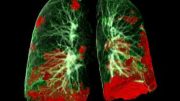
Scientists at Cambridge have found that fasting raises arachidonic acid levels in the blood, inhibiting inflammation and offering insights into the health benefits of fasting and the anti-inflammatory effects of drugs like aspirin on chronic diseases.
Scientists at Cambridge may have uncovered a novel mechanism by which fasting can reduce inflammation – a potentially harmful consequence of the immune system’s activity that is at the root of several chronic illnesses.
In research published in Cell Reports, the team describes how fasting raises levels of a chemical in the blood known as arachidonic acid, which inhibits inflammation. The researchers say it may also help explain some of the beneficial effects of drugs such as aspirin.
The Link Between Diet and Chronic Inflammation
Scientists have known for some time that our diet – particularly a high-calorie Western diet – can increase our risk of diseases including obesity, type 2 diabetes, and heart disease, which are linked to chronic inflammation in the body.
Inflammation is our body’s natural response to injury or infection, but this process can be triggered by other mechanisms, including by the so-called ‘inflammasome’, which acts like an alarm within our body’s cells, triggering inflammation to help protect our body when it senses damage. But the inflammasome can trigger inflammation in unintentional ways – one of its functions is to destroy unwanted cells, which can result in the release of the cell’s contents into the body, where they trigger inflammation.
Research Findings on Fasting and Arachidonic Acid
Professor Clare Bryant from the Department of Medicine at the University of Cambridge said: “We’re very interested in trying to understand the causes of chronic inflammation in the context of many human diseases, and in particular the role of the inflammasome.
“What’s become apparent over recent years is that one inflammasome in particular – the NLRP3 inflammasome – is very important in a number of major diseases such as obesity and atherosclerosis, but also in diseases like Alzheimer’s and Parkinson’s disease, many of the diseases of older age people, particularly in the Western world.”
Fasting can help reduce inflammation, but the reason why has not been clear. To help answer this question, a team led by Professor Bryant and colleagues at the University of Cambridge and the National Institute for Health in the USA studied blood samples from a group of 21 volunteers, who ate a 500kcal meal and then fasted for 24 hours before consuming a second 500kcal meal.
The team found that restricting calorie intake increased levels of a lipid known as arachidonic acid. Lipids are molecules that play important roles in our bodies, such as storing energy and transmitting information between cells. As soon as individuals ate a meal again, levels of arachidonic acid dropped.
When the researchers studied arachidonic acid’s effect in immune cells cultured in the lab, they found that it turns down the activity of the NLRP3 inflammasome. This surprised the team as arachidonic acid was previously thought to be linked with increased levels of inflammation, not decreased.
Implications and Future Directions
Professor Bryant, a Fellow of Queens’ College, Cambridge, added: “This provides a potential explanation for how changing our diet – in particular by fasting – protects us from inflammation, especially the damaging form that underpins many diseases related to a Western high-calorie diet.
“It’s too early to say whether fasting protects against diseases like Alzheimer’s and Parkinson’s disease as the effects of arachidonic acid are only short-lived, but our work adds to a growing amount of scientific literature that points to the health benefits of calorie restriction. It suggests that regular fasting over a long period could help reduce the chronic inflammation we associate with these conditions. It’s certainly an attractive idea.”
The findings also hint at one mechanism whereby a high-calorie diet might increase the risk of these diseases. Studies have shown that some patients that have a high-fat diet have increased levels of inflammasome activity.
“There could be a yin and yang effect going on here, whereby too much of the wrong thing is increasing your inflammasome activity and too little is decreasing it,” said Professor Bryant. “Arachidonic acid could be one way in which this is happening.”
The researchers say the discovery may also offer clues to an unexpected way in which so-called non-steroidal anti-inflammatory drugs such as aspirin work. Normally, arachidonic acid is rapidly broken down in the body, but aspirin stops this process, which can lead to an increase in levels of arachidonic acid, which in turn reduces inflammasome activity and hence inflammation.
Professor Bryant said: “It’s important to stress that aspirin should not be taken to reduce the risk of long-term diseases without medical guidance as it can have side-effects such as stomach bleeds if taken over a long period.”
Reference: “Arachidonic acid inhibition of the NLRP3 inflammasome is a mechanism to explain the anti-inflammatory effects of fasting” by Milton Pereira, Jonathan Liang, Joy Edwards-Hicks, Allison M. Meadows, Christine Hinz, Sonia Liggi, Matthias Hepprich, Jonathan Mudry, Kim Han, Julian L. Griffin, Iain Fraser, Michael N. Sack, Christoph Hess and Clare E. Bryant, 23 January 2024, Cell Reports.
DOI: 10.1016/j.celrep.2024.113700
The research was funded by Wellcome, the Medical Research Council, and the US National Heart, Lung, and Blood Institute Division of Intramural Research.









Be the first to comment on "Cambridge Scientists Uncover New Way in Which Fasting Helps Reduce Inflammation"